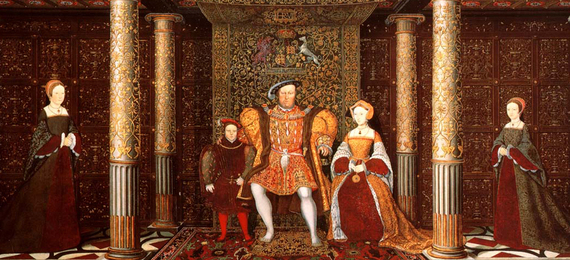On January 14, 2016, the Anglican Communion suspended its American branch, the Episcopal Church, from voting and decision making in the global Anglican Church for the next three years. This was a direct reaction to the Episcopal Church officiating marriages of same-sex couples in church. As quoted from Primates2016.com, this act violated church doctrine:
The traditional doctrine of the church in view of the teaching of Scripture, upholds marriage as between a man and a woman in faithful, lifelong union. The majority of those gathered reaffirm this teaching.
Such a statement would not have raised an eye if it had been made by the Catholic Church, whose stance on marriage has been clear since it assimilated Peter Lombard's list of seven sacraments in 1439. The sacrament of marriage espouses one man, one woman, one flesh, for life.
Yet, the very foundation of the Church of England lies in pragmatism over doctrine. In 1532, Catholic King Henry VIII was unhappy with his marriage to his brother's widow, Catherine of Aragon, and not just because Leviticus forbids such unions. Catherine had not produced a male heir to his throne, so Henry appealed to Pope Clement VII for a divorce.
The Pope denied Henry's request, less out of defense of sacrament than for fear of political backlash from Catherine's nephew, Holy Roman Emperor Charles V. In response, Henry appointed his sympathizer, Thomas Cranmer, Archbishop of Canterbury: a married man in celibate clothing. Masking his deception, Cranmer traveled to Rome in 1533, where the unsuspecting Pope approved his appointment as archbishop. With new spiritual leadership loyal to the king, the Church of England broke away from Rome and became self-reliant.
The new Church's doctrine on marriage and divorce technically did not change, but with Thomas Cranmer comfortably seated in his new position of spiritual authority, he could now "annul" Henry's marriage with Catherine, rather than "divorce" them. Four months later, Cranmer officiated Henry's marriage to the already pregnant Anne Boleyn, then "annulled" that and Henry's next four marriages.
Today, the Anglican Church retains the same doctrine of marriage and divorce as its Catholic forebears but approaches the traditional aspects of marriage differently. In a nod to wedded Thomas Cranmer, for example, the Anglican Church permits marriage among clergy members, and as of 2002, divorce as well.
The spiritual distinction is simple. Since the Council of Nicea, Catholic tradition has taught celibacy among clergy with the idea that marriage detracts from a priest's perfect relationship with God. The Anglican Church pragmatically took the opposite stance, that a person can still seek God while married to another person.
Along that line of reasoning, the Episcopal Church's decision to officiate marriages of practicing same-sex couples may diverge from doctrine but is consistent with the Anglican Church's history of pragmatic changes to tradition. If a church can wink at parts of doctrine like "lifelong," it stands to reason that "man" or "woman" can be similarly altered if the net result is still a "faithful" union.
The modern Anglican Church proclaims pride in its openness. It offers communion freely to Anglicans and Catholics alike and permits a degree of flexibility among each of its national churches to adapt to the culture of its own country.
Our country's culture is shifting, and in this proclaimed spirit of openness, the Episcopal Church has updated traditions accordingly. It is a double standard for the Anglican Communion to penalize its American branch for this adaptation, now choosing to cite doctrine despite its own history of taking pragmatic liberties with it.
